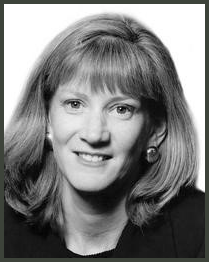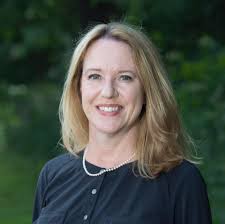From Paddi's Desk
by Paddi LeShane

What a couple of weeks of uncharted waters.
Everyone is going through much of what is happening in Hartford; the minute by minute juggling of alternating plans, adapting current protocols and priorities to reflect reality and managing everyone's expectations.
The scoop from the halls of state government sees the Governor making great progress in addressing the first critical decisions of how state government agencies and the state workforce will operate under these circumstances. Legislative leaders and executives in the judicial branch are in the process of assessing and re-purposing their operations to move from containment of the virus to mitigation of the spread.
This week, Governor Lamont has moved on to figuring out protocol for those events and non-government organizations/industries that residents count on in order to provide the services necessary to keep the wheels of CT's economy running as well as impacting the daily lives of CT's residents such as child care, sporting events and more.
It appears that at 3PM daily, the Governor will provide an update and focus on one sector of life or work in CT and what's being planned for now and the foreseeable future. We anticipate that he will address how to make the upcoming presidential primary on April 28th workable without knowing what the reality will be a month from now.
The legislature took unprecedented action earlier in the week by announcing a four-day closure of the Capitol campus in Hartford as well as adjusting the joint rules to reflect adjusted final committee deadlines. On top of that, they adjusted the time frame for internal bipartisan review and analysis to accommodate a speedier road to chamber action. Just last night, the leaders announced that the Capitol campus will be closed for additional two weeks through March 30th. The same day, the judicial branch announced that all criminal and civil cases will be put on a 30 day extension.
With the closing of the Capitol building and a "push pause" on formal legislative activity for the short term, it will be like an Easter egg hunt trying to seek and find leaders and committee chairs to continue our advocacy for our clients through the yet-to-be-defined process. While many consider this to be a challenge, those of us who have been around for the many ups and downs of legislative "crises" see this as an opportunity, given the years we've spent on the road reaching out and creating personal relationships with many legislators throughout the state. With emails and cell phone contacts in hand, we're feeling quite confident that we can maneuver through this complicated and frustrating period until the building opens up again.
We are unclear at this moment if the new deadlines established for the committees will remain, as well as the recent change to the joint rules allowing for committee meetings to be held via telecommunications. Many committee chairs and legislators will also be under the gun to "work" their members in order to ensure the safe passage of a priority bill.
In the past few days our team has been discussing the management of verbal amendments proposed by a member calling in, the logistics of developing that final language and the commonly used motion to recess a meeting to hold a sidebar conversation to determine the position of sudden motions or amendments. Just some more complications identified from these "going virtual" changes!
All in all, it's our expectation that many of the 1,000+ proposals now before the 17 remaining committees of the legislature will see a slow and final death due to the external crisis that's hit our state. With the nature of the many controversial items still on committee agendas, many think that death by chaos is not such a bad idea.
|
|
CT Agency Corner
State Agencies Working Remotely
by Michael Johnson
For those who have received the "CT Agency Corner" write up I've been preparing for the past six years, it's clear that this article comes at a time where everyone is deciding how to approach state legislators and agency officials when folks in state government are working remotely. Here's a helpful guide to help navigate the "rules of the road" that will help give you an advantage when you are monitoring state regulations:
(1)
Share background information in advance of your conversations. State employees working remotely will not necessarily have access to all their records that they would normally have access to. Please be as prepared as possible before any calls that you may have with agency officials to find past documents that were discussed and to share them in advance of any conversation that you have with them.
(2)
Set up follow up times to check in after a conversation. Don't underestimate the ability for officials to get busy with work behind the scenes. Jobs will still need to get done and it's important if you have a willing participant in your "ask" to set up a check-in on what's needed to help advance your objective.
(3)
For legislative asks, keep an active draft of your bill on file. While the legislature is away for the next few weeks, this could be a time where active maintenance takes place on the CGA website systems. Therefore, if you have a proposal you're actively working on behind the scenes, keep an active draft of it in your files as a word document or google sheet so that if you need it in a pinch, you're covered.
(4)
Lastly, be sensitive to the timing of your need. If you have a time sensitive request that has a deadline and needs an immediate approval, give that information to your S&L contact so they can set the appropriate expectation with the agency you want to work with on this.
I hope you all find this helpful and, most importantly, stay safe during this important period of being cautious.
|
|
Did You Know?
This Week in CT History
March 14, 1791
Eli Whitney Patents the Cotton Gin
Today in 1794, Eli Whitney, one of Connecticut's most influential inventors, received a patent for the Cotton Gin, a machine that revolutionized the production of cotton by optimizing the time-intensive task of cleaning seeds from raw cotton bolls.
Click
here to learn more about what lead him to this discovery.
|
|
|
|
 |
|
Municipal
Roundup
by Ryan Bingham
As we wade into this unchartered territory over preparation, fears, and discussion around COVID-19, we wanted to take a look at what some municipalities are contemplating with regard to large gatherings, public meetings, and general access to town and city functions. By now, we have all heard the cancellations of large events, like the CIAC basketball tournament and several St. Patrick's parades, including New Haven, Bridgeport and our own highly anticipated Hartford parade. In Ansonia, Mayor David Cassetti ordered all non-essential board and commission meetings cancelled for the time being because of coronavirus fears. That included Tuesday night's Board of Aldermen meeting, but the fate of other meetings hasn't yet been determined.
Kevin Maloney, spokesman for the Connecticut Conference of Municipalities announced this week that "[They] are now gathering information to assist local leaders in developing model policies for local governments." He added that local governments have the option to cancel a meeting during a "slow time," such as late summer, when there is no new business. Also, Maloney said, there is a directive from Gov. Ned Lamont stating that there should be no meeting with 100 people or more. That could be a challenge moving forward, Maloney said. "During the municipal budget season, especially in large suburbs and cities, you could have a meeting where the budget is being hotly debated and could attract a crowd, especially on the Board of Education side," he said.
The Town of Fairfield also was reassessing its approach to meetings. On Wednesday, the town's Police Commission canceled a meeting scheduled that day because of COVID-19 fears. Fairfield First Selectwoman Brenda Kupchick said Tuesday night that she was trying to come up with a plan regarding town boards and commissions. She said she was considering having smaller ones postpone their meetings while larger ones could do them virtually.
Norwalk, for example, has no immediate plans to cancel public meetings. However, the city is planning to hold upcoming public hearings on the budget in some of their larger venues, such as the concert hall in city hall, to make sure residents aren't in tight quarters at meetings.
We'll keep you posted as this continues to impact government functions, meetings, events and business operations.
|
|
 |
|
2020 Behind the Scenes
by Chelsea Neelon
This week, we featured Representative Leslie Hill who represents the 17th House District.

What motivated you to run for office?
I was first motivated to run for office in 1976, on my 5th grade field trip to the Capitol. My teacher was Nikki O'Neil, wife of then-Representative, and later Governor, William O'Neill. Watching the House in session, I was captivated by the seriousness of the debate. In 2018, after serving on Canton's Board of Education for 8 years, and 3 years as First Selectman, I believed I had experience that would benefit my constituents and felt ready to run.
What are some of your legislative priorities this session?
My biggest legislative priority is to continue to fight for fiscal responsibility and Connecticut's economic resurgence. We must support the growth of our small and mid-sized businesses, which are the lifeblood of the towns in my district. I am also dedicated to issues impacting our school districts and students, and our most vulnerable residents: our seniors and those with disabilities.
Last question! What's your favorite hobby?
My favorite hobby is my lifelong passion for horses and riding. I own a Morgan mare and will begin showing her this year. I also love to garden, hike in our beautiful local Land Trusts, and I am an avid Boston Red Sox fan!
|
|
 |
 |
 |
|
 |
|